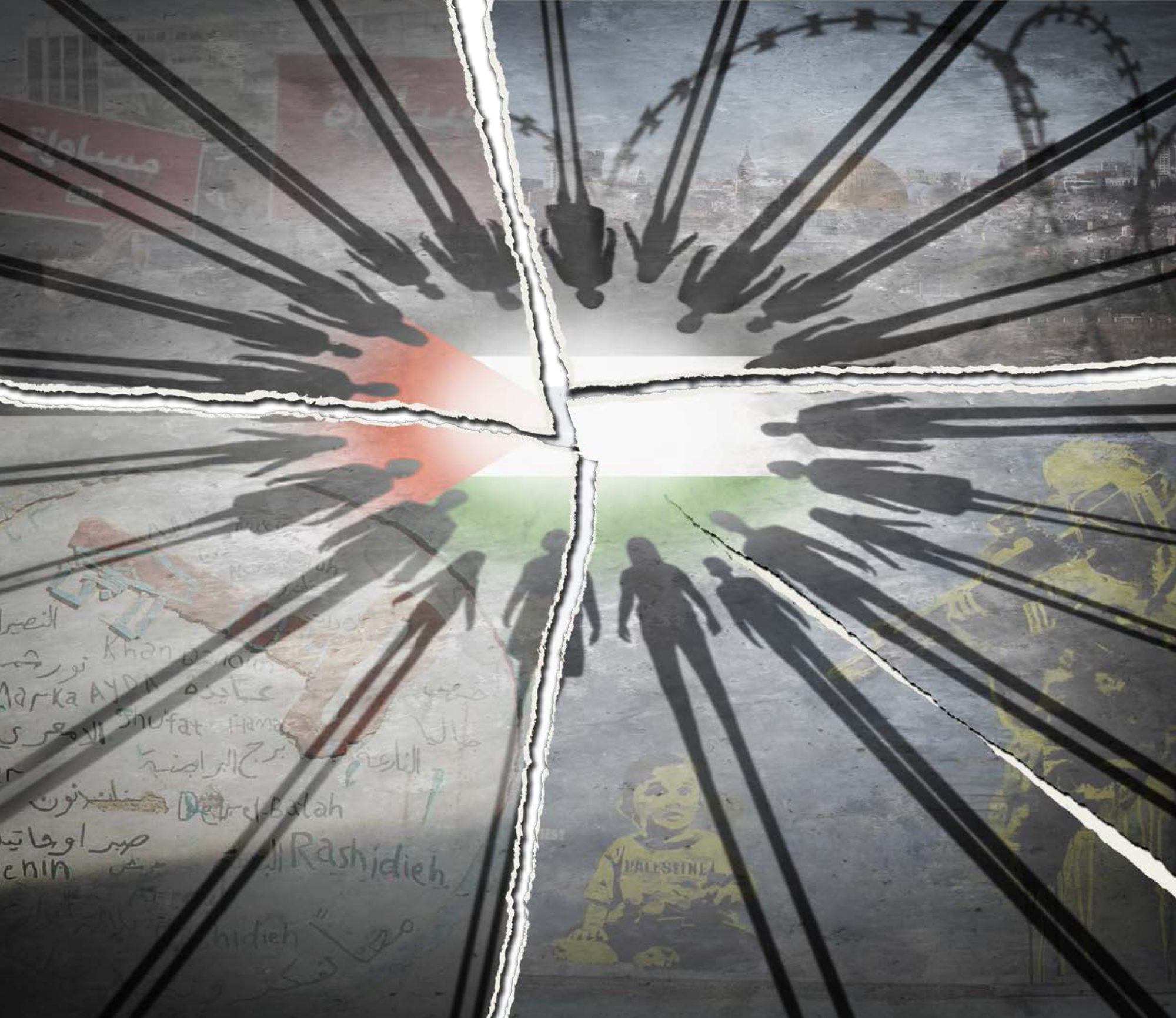Address to the Presbytery of Lothian, April 28 2018
Rev Páraic Rèamonn
I left St Andrew’s Scots Memorial Church in Jerusalem on Easter Monday, April 2 2018, but then spent some weeks on deputation in Scotland
Moderator,
It’s a pleasure and a privilege to speak here tonight. I am a son of this Presbytery, ordained 36 years ago in St Helen’s Church, Cockburnspath, to what is now the parish of Dunglass. 25 years ago, I left for Geneva to work for what is now the World Communion of Reformed Churches. From there, 4 years ago, 3 months shy of retirement, I was tempted by the World Mission Council with the alternative of moving to Jerusalem, which is not retirement as most of us understand the term.
It turned out that I can resist anything except temptation.
This Palm Sunday, as moderator of the Presbytery of Jerusalem, I presided at the ordination of my successor, Rev John McCulloch. On Easter Sunday, I preached my final sermon; and the following day, my wife Vivien and I flew home, leaving the church in Jerusalem in John’s capable hands.
I could talk in the time allotted to me of the pleasures of ministry in St Andrew’s Scots Memorial Church – just down the road, although separated by a big ugly wall, from Bethlehem, the place of Jesus’ birth, and right across the valley from the Old City of Jerusalem, the place where Jesus was crucified and rose again. Or about the pleasures of working with our sister churches in the Palestinian Christian community: our Anglican and Lutheran partner churches, and all the others – Latin, Evangelical, Orthodox, and Oriental Orthodox. Or about the many friends, Jewish and Arab, we made right across the Israeli and Palestinian communities.
But all of that would be to ignore the elephant in the room.
Next month, the state of Israel will celebrate its 70th anniversary. Meanwhile, down on the border with Gaza, as many of you will have noticed, snipers in the Israel Defence Forces have been shooting demonstrators.
Every Friday since March 30, Palestinian refugees have been marching to the border to demand the right to return to their homes – homes from which they or their parents or grandparents fled or were driven out 70 years ago. And every Friday, the IDF have been firing at them, sometimes with tear gas or rubber bullets, but all too often with live ammunition.
This week, the liberal Israeli newspaper Haaretz reported that the casualty list so far is 40 dead and 5,500 wounded. The dead include two journalists. The injured include 2,500 in Palestinian government hospitals, of whom 1,500 – two-thirds – are the victims of live fire.[1]
How have things come to this?
The World Mission Council commissions people like me when they send us abroad. In November 2014, I had the unusual privilege at preaching at my own commissioning in Longniddry.
There I quoted Amira Hass, one of Haaretz’s best columnists, who had recently written about the many ways in which Israel tries to get rid of the unwanted Palestinians in the territories occupied in 1967. She set out an inventory of nine methods of overt or covert expulsion currently in use, camouflaged under many legal definitions or concealed under various circumstantial theories, and she said:
“As the descendants of a people [that] was banished throughout history from its homes and various homelands, we Israelis have developed our own expulsion skills – skills that would not embarrass the kings, nobles and officials of the goyim. Our contribution to the family of banishing nations is great, especially considering our short existence as a sovereign entity.”[2]
But her most important point came, almost in passing, in the next paragraph. In 1947-48, the IDF expelled from their homes, their towns, their villages roughly 80% of the Arabs in what became the new state of Israel.
Since 1948, Israel has made do with smaller expulsions. But this was the big expulsion, said Hass. This was the mother of expulsions.
For a long time, it wasn’t fashionable to talk about this. People put their trust in Oslo and in the “peace process” the Oslo Accords were supposed to kickstart.
In Longniddry, I thought it was just possible that we might be on the brink of a real conversation in Israel/Palestine about the mother of injustices. It turns out that this was only half true.
A decade ago, when the failure of Oslo was clear, Palestinian civil society began to say that the occupation is only one of three ways in which Zionism denies fundamental Palestinian rights.
It began to demand an end to:
- Israel’s military occupation of Gaza and the West Bank (including East Jerusalem);
- its systematic discrimination against its Palestinian (“Arab-Israeli”) citizens;
- its persistent denial of the rights of Palestine refugees, such as those in Gaza, particularly their right to return to their homes.
These three demands underlie the Boycott, Divestments and Sanctions movement, supported by the Palestinian Christian community in the Kairos Palestine document.[3] At the General Assembly last year, I argued strongly that the Church of Scotland should not endorse that movement; but I believe equally strongly that we should endorse the three underlying demands.
Omar Barghouti says it right:
“I am aware that reducing Palestinian demands to ending the occupation alone seems like the easiest and most pragmatic path to take, but I firmly believe that it is ethically and politically unwise to succumb to the temptation. The indisputable Palestinian claim to equal humanity should be the primary slogan raised, because it lays the proper moral and political foundation for effectively addressing the myriad injustices against all three segments of the Palestinian people. It is also based on universalist values that resonate with people the world over.”[4]
But this is the sound of one hand clapping. The Palestinian claim to equal humanity has not yet found much of an echoing response among Israeli Jews.
Instead – and this may be a necessary detour – it is beginning to find a response in the international community.
In 2009, Virginia Tilley led a group of international scholars in writing a 300-page report that focused on whether the legal concepts of colonialism and apartheid, as defined by the UN, could aptly apply to Israel’s rule over the West Bank, East Jerusalem, and Gaza – and concluded that they could.[5]
Last year, she co-authored with Richard Falk a much shorter report in which they argued that Israel’s regime of apartheid dominates, not just the occupied territories, but the Palestinian people as a whole. Indeed, they argue, the strategic fragmentation of the Palestinian people is the principal method by which Israel imposes its apartheid regime:
“This fragmentation operates to stabilize the Israeli regime of racial domination over the Palestinians and to weaken the will and capacity of the Palestinian people to mount a unified and effective resistance. Different methods are deployed depending on where Palestinians live. This is the core means by which Israel enforces apartheid and at the same time impedes international recognition of how the system works as a complementary whole to comprise an apartheid regime.”[6]
This seems to me to be about right.
Zionism was an understandable response to the vicious and murderous racism suffered by Jews in 19th- and 20th-century Europe. But it was and is a false solution, executed as the expense of what Lord Balfour delicately called the “non-Jewish inhabitants” of Palestine. As Hannah Arendt argued long ago: “The [Zionist] solution to the Jewish question merely produced a new category of refugees, the Arabs, thereby increasing the number of stateless and rightless by another 700,000 to 800,000 people.”[7]
I arrived in Jerusalem angry – rightly angry – at how Israel was treating the Palestinians: it was the week after the last war in Gaza ended. My dominant feeling when I left Jerusalem was not so much anger as sadness. One can only be saddened by the sight of two communities still trapped – perhaps, more trapped than ever – in a conflict from which they seem unable and, in too many cases, unwilling to escape.
The essential question facing Jews and Arabs, Palestinians and Israelis remains what it always has been: how to share a land in which they both have deep roots. Our task as Christians with a natural affection for the Holy Land, our task as a church with an involvement in the Holy Land dating back to the 1830s, is to help them, in whatever modest ways we can, to do that.
Notes
[1] Jack Khoury, “40 dead, 5,511 wounded: UN releases figures on Palestinian casualties in Gaza’s mass protests on Israel border”, Haaretz Apr 25 2018; Jack Khoury, “Second Gazan journalist shot by Israel during border protest dies of wounds”, Haaretz Apr 25 2018
[2] Amira Hass, “Israelis excel at camouflaging the expulsion of Palestinians”, Haaretz, October 20 2014. Hass is just as severe a critic of Palestinian political leaders: see, for example, “Scent of anti-Semitism in Abbas’ speech doesn’t change his support for two states”, Haaretz, May 2 2018
[3] “A moment of truth: A word of faith, hope and love from the heart of Palestinian suffering”,
[4] Omar Barghouti, BDS: Boycott, Divestment, Sanctions. The Global Struggle for Palestinian Rights (Chicago, IL: Haymarket Books, 2011), 60.
[5] Occupation, Colonialism, Apartheid? A re-assessment of Israel’s practices in the occupied Palestinian territories under international law is available on the website of the Human Sciences Research Council of South Africa. Tilley later developed the report into a book: Beyond Occupation: Apartheid, Colonialism and International Law in the Occupied Palestinian Territories (London: Pluto Press, 2012). See also the review of Tilley’s book in the Journal of Palestinian Studies, volume 42, 2012/3.
[6] Richard Falk and Virginia Tilley, Israeli Practices towards the Palestinian People and the Question of Apartheid (Beirut: ESCWA, 2017). The report was promptly suppressed by the UN Secretary-General but can be downloaded here, among other places. Oddly, the ESCWA press release announcing the report is still on its website.
[7] David Feldman and Brendan McGeever, “British left’s anti-Semitism problem didn’t start with Corbyn. It’s been festering for a century”, Haaretz, April 9 2018

